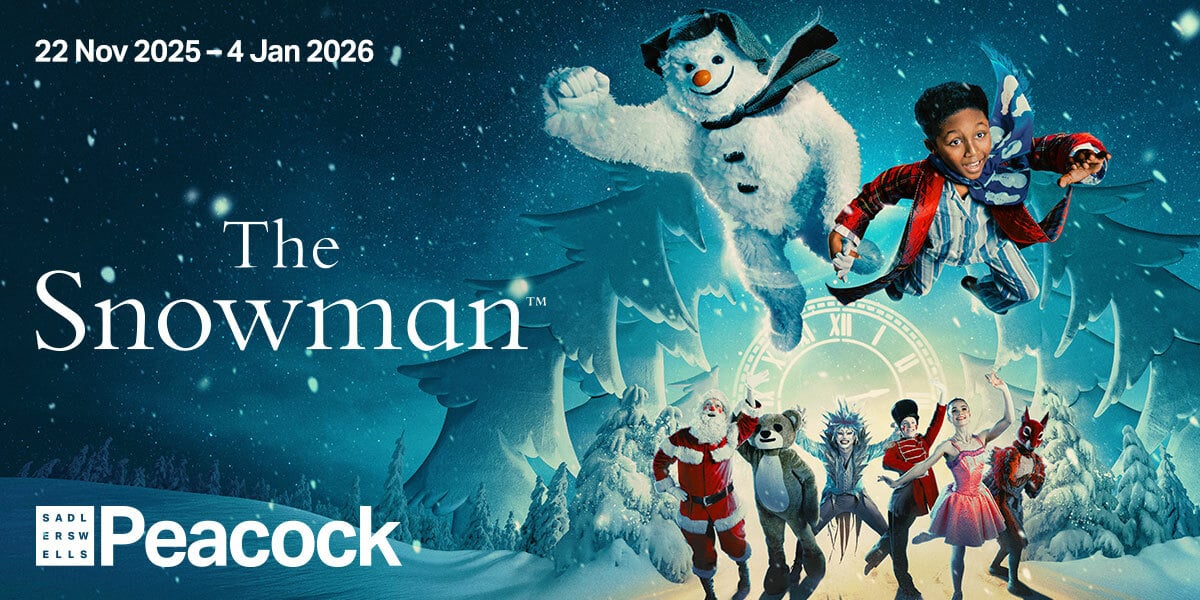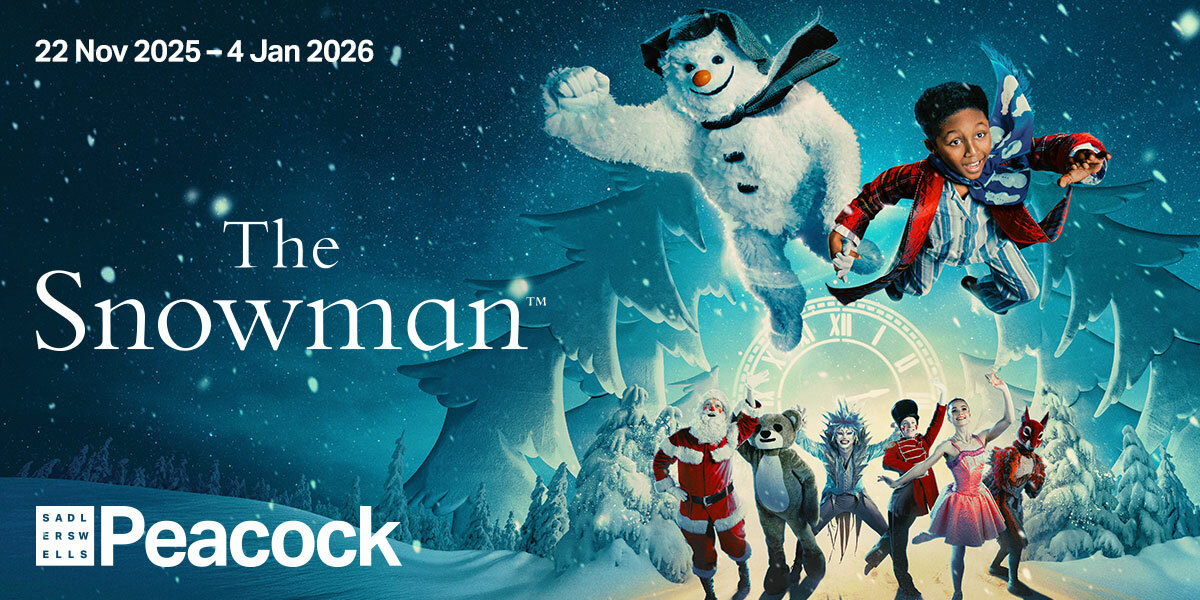Why does this image upset so many people?
Published on 20 August 2025
Last updated on 21 August 2025
For almost three decades, The Snowman has been a festive fixture in London. Flying into the Peacock Theatre year after, the family show delights generations with its story of childhood wonder. It is a tale we’re sure you’re all aware of; a boy and a snowman soar through the night sky, brushing shoulders with Father Christmas, Jack Frost, and other festive creatures. It is fantasy at its purest, designed to make us believe in the impossible.
And yet, when the artwork for the show was updated a few months ago, the response was anything but pure. It sparked a barrage of negativity and abuse, that even our extensive profanity filters couldn’t contend with. In the end, after hours of hiding comments, we considered pulling the advert altogether. The reason? The child holding the snowman’s hand is black.
The absurdity is hard to ignore. The commenters are perfectly comfortable with the flying snowman and 6” squirrel pictured, but the idea of a Black child sharing that adventure? Suddenly, that’s “unrealistic and woke.”
As of 2021, there are 2,485,724 Black people living in the UK. Why shouldn’t children from those communities see themselves reflected on stage? Especially if they, as the professional casting director will vouch for, were the best actor to audition? Is magic reserved for those with less melanin, regardless of talent? It isn’t as if they have made the Snowman black, he’s made of snow (well, white fur, but close enough). Yet the irony is that the loudest critics, who decree that the decision to hire this young actor was made by a bunch of snowflakes, and not a professional casting director whose whole job it is is to pick the best actor for their clients, are themselves, melting at the sight of inclusive casting.

We’ve seen this pattern before. Take Hercules currently playing at Theatre Royal Drury Lane. The Disney animated film imagined the (zero to) hero as a ginger-haired white boy. But in Disney’s newest musical adaptation, Grammy nominee Luke Brady is playing the demi-god with light brown skin. Cue outrage. Yet the ‘real’ Hercules (if such a word can be applied to mythology) was Greek, so unlikely to have the pasty white skin of the animated feature, though, importantly, his skin colour was never described in the myths (the 12 tasks he had to complete are far more entertaining to read). And really, if audiences can accept a demi-god walking among mortals, lifting carts with one hand, and punching through marble with the other, is completely acceptable, then why on St Olympus is the only thing they can’t imagine is his skin being anything other than white?
And here’s where it gets contradictory. Earlier this year, Darren Criss made history with Maybe Happy Ending, when he became the first Asian American actor to win the Tony Award for Best Actor in a Musical. The story itself is inherently Korean, being set in a near-future Seoul. So when it was announced that Andrew Barth Feldman, a white actor, would take over the lead role of Oliver, many understandably questioned the decision. All of Oliver’s understudies have been of Asian descent, and so far, the character has only been played by people from this community. Representation matters, especially in an industry where Asian American performers accounted for just 6.3% of roles on Broadway in 2019, (white actors made up more than 50% in 2022). While many cried out, claiming that the role of Oliver should have been protected, some claimed that it was unfair and anti-white if other people couldn’t play the role.
So what are they really saying here? That colour-blind casting is fine as long as it’s a white actor benefiting from it. When a Black child holds hands with the Snowman, or when a mixed-race performer plays Hercules, suddenly “authenticity” matters. But when a white actor is cast in a Korean-set musical the ‘woke casting’ critics fall silent, or worse, insist that representation doesn’t matter as it is ‘all fiction anyway’. The hypocrisy is staggering.
The truth is, theatre is at its best when it reflects the world around us and allows everyone to dream. Representation really does make a difference. Casting choices like these don’t just fill roles, they spark imaginations, open doors, and remind us that theatre’s magic belongs to everyone.
Colour-blind casting isn’t about taking something away from anyone. It’s about widening the spotlight so more people can step into it. When that happens, the world we see on stage doesn’t shrink, it grows.


